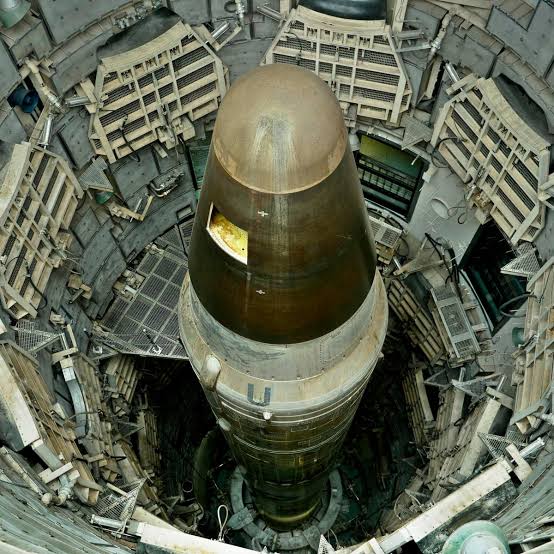
Israel last week launched an attack on Iran due to concerns over Iran’s nuclear program, which Israel sees as an existential threat. Iran’s nuclear advancements, including enriching uranium to 60% purity, have raised alarms in Israel. Israeli Prime Minister Benjamin Netanyahu believes Iran’s nuclear program poses a significant threat to Israel’s existence. Iran’s ballistic missile capabilities are also a concern for Israel, with Netanyahu worried about the potential for Iran to produce 300 ballistic missiles monthly.
Besides, the two countries have been engaged in a long-standing proxy conflict, with Iran supporting groups like Hamas and Hezbollah, which have clashed with Israel. Recent escalations in this conflict have contributed to the current tensions.
Israel’s attacks on Iran began after a two-month deadline set by US President Donald Trump for Iran to secure a deal on its nuclear program expired. Netanyahu cited Iran’s nuclear program as the reason for Israel’s preemptive strike.
The conflict is also driven by broader regional dynamics, with Israel seeking to assert its dominance and Iran aiming to expand its influence. The situation has been further complicated by the ongoing Middle Eastern crisis, which began in 2023.
The situation remains volatile, with both countries exchanging airstrikes and rhetoric, and international actors calling for restraint and diplomacy to prevent further escalation.
This development has further reinforced discussions on the issues around ownership of nuclear weapons.
Barnabas Sonayon Hunjo in this article provides a brief overview of the history, politics, legality, secrecy, and double standards surrounding nuclear weapons today.
Nuclear weapons remain one of the most powerful and controversial inventions in human history. Possessing the ability to annihilate cities in seconds, they are both instruments of national defense and symbols of global power. But why do some countries have them while others are denied? Why are some nuclear powers secretive, and how fair is the international system that governs them?
The race to develop nuclear weapons began during World War II with the U.S.-led Manhattan Project, culminating in the atomic bombings of Hiroshima and Nagasaki in 1945. This event not only ended the war but also signaled the beginning of the nuclear age.
Soon after, the Soviet Union, United Kingdom, France, and China followed suit, each developing nuclear arsenals during the Cold War. These five states are now recognized as “official” nuclear powers.
To control the spread of nuclear weapons, the Nuclear Non-Proliferation Treaty (NPT) was signed in 1968. It divides countries into two categories: Nuclear-Weapon States (NWS) – allowed to have nuclear weapons– United States, Russia, United Kingdom, France and China. On the other hand, Non-Nuclear-Weapon States (NNWS) are those not allowed to develop nuclear weapons. They include all other signatory nations.
NPT’s three main pillars are Non-Proliferation where NNWS must not acquire nuclear weapons; Disarmament where NWS must move toward reducing and eliminating their arsenals; and Peaceful Use of Nuclear Energy where all countries can pursue nuclear energy for civilian purposes under international monitoring.
However, the NPT has been criticized for being inherently unequal: five countries get to keep their nukes, while others are forever barred. There has been little progress on the disarmament promised by the NWS. Countries like India, Pakistan, Israel, and North Korea developed nuclear weapons outside the treaty, challenging its legitimacy. This has led to accusations of double standards and nuclear apartheid—where a few nations monopolize the power to destroy, while others are punished for trying.
Not all nuclear-armed states are open about their arsenals. Some have developed weapons secretly, often due to regional threats or political strategy. This is further divided into two categories: Declared Nuclear States (Outside NPT) which include India, Pakistan, and North Korea, and Undeclared/Secret Nuclear States like Israel which has maintained a policy of “nuclear ambiguity,” Iran, with enriched Uranium but has denied weaponizing it into its nuclear arsenal, and Saudi Arabia, which is alleged to be exploring nuclear capability.
Israel is believed to be the most prominent secret nuclear power. Although never confirmed, satellite images, intelligence leaks (notably from whistleblower Mordechai Vanunu), and international consensus confirm its nuclear capability. Its policy of deliberate opacity is designed to deter enemies without triggering regional arms races or international sanctions.
It will be interesting to look into why some countries are not allowed to have nukes. The refusal to allow new countries to obtain nuclear weapons stems from several factors:
- Risk of global annihilation – More nukes increase the chance of war or accidents.
- Geopolitical control – nuclear weapons are instruments of power; keeping them limited preserves existing hierarchies.
- Preventing arms races – One country going nuclear can provoke rivals to do the same.
- Regional instability – In volatile regions (e.g., the Middle East, and South Asia), nuclear proliferation is especially dangerous.
However, these reasons often mask real political interests: powerful countries want to maintain strategic superiority.
Is the Current System Fair? Many argue that the global nuclear order is deeply flawed because nuclear-armed countries have not made serious moves to disarm. Non-nuclear countries face sanctions and isolation even for peaceful nuclear activity. Some nuclear powers (e.g., Israel) face no consequences, while others (e.g., Iran) are harshly punished. This has created a two-tiered system – one where nuclear privilege is reserved for a few, and others must obey under threat of force or economic punishment.
In conclusion, nuclear weapons reflect a brutal truth in international relations, as power often trumps principle. The laws that govern nuclear arms are shaped not just by ethics or global safety, but by who gets to make the rules and who has the means to defy them.
The global community faces a challenge – how to balance security and fairness, disarmament and deterrence, in a world where the most powerful tools of destruction remain in human hands.
Barnabas Sonayon Hunjo is a lawyer, journalist and social commentator
